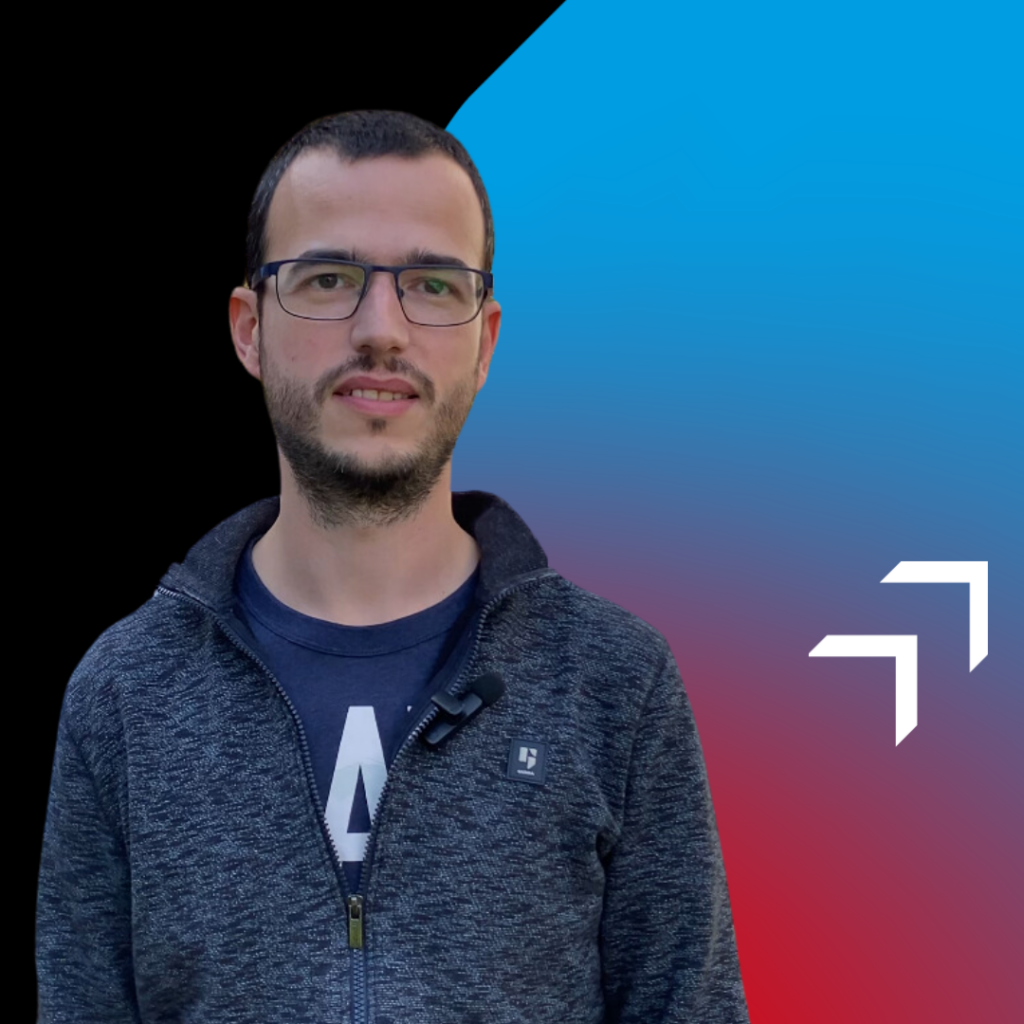In Conversation With Our Young Researchers: Aleksandar Matovic
01 March 2024

Resilience Computing
As the cyber threat grows, there is an increasing need to improve system resilience to protect our most sensitive assets, such as healthcare and financial data, satellites and the energy grid. Aleksandar Matovic’s research aims to increase the robustness of embedded systems.
How can we strengthen cyber-physical systems to improve their resilience and, in turn, the security of our data?
Aleksandar Matovic is a doctoral researcher at the Interdisciplinary Centre for Security, Reliability and Trust (SnT) of the University of Luxembourg. His research revolves around cyber security in general, with a focus on resilient computing, fault tolerance and embedded systems.
Strengthening The Robustness and Resilience of Embedded Systems
Critical information infrastructures and cyber-physical systems protect our most sensitive assets, such as healthcare and financial data, satellites and the energy grid. In today’s world, these systems face constant threats from skilled, malicious hackers and random, accidental failures. These dangers can lead to catastrophic events, putting lives and the environment at risk.
Aleksandar Matovic’s research journey in cyber-physical systems has focused on improving system resilience and fault tolerance. This has involved a comprehensive approach, combining theoretical research with practical applications to improve the stability and efficiency of cyber-physical systems.
Aleksandar’s research aims to have a significant impact on society by improving the security of safety-critical systems. This will lead to a more stable and secure digital infrastructure, which is essential in today’s interconnected world. For the environment, the improved efficiency of these systems can contribute to better resource management and energy savings. For businesses, the increased reliability and security of systems leads to reduced operational risk, fostering innovation and competitive advantage in the technology sector.
During his PhD, Aleksandar has participated in the ADMORPH project, a Horizon 2020 initiative funded by the European Commission. This project was dedicated to the development of adaptive solutions for cyber-physical systems, addressing a range of cyber threats.
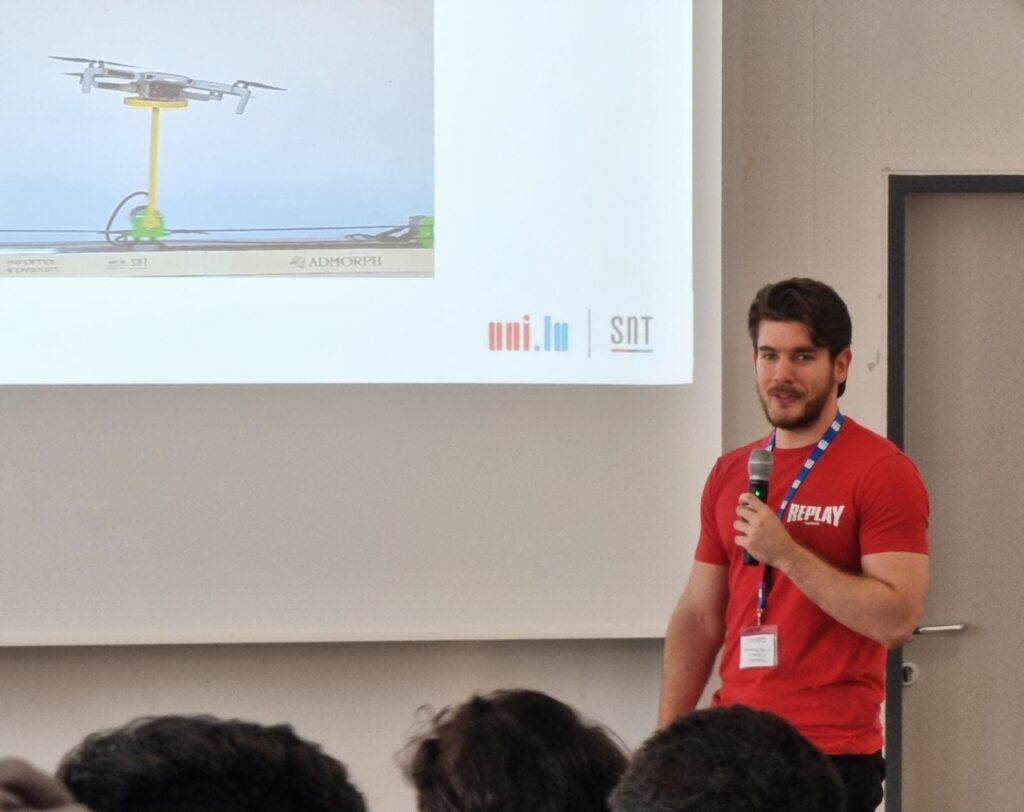
It was a collaborative effort involving esteemed universities like Lund University and the University of Amsterdam, alongside industry giants such as Collins Aerospace and Thales. This experience not only enriched my academic journey but also provided invaluable exposure to real-world applications in the field of cybersecurity.
Aleksandar Matovic
The Inverted Pendulum
During the first part of his PhD, Aleksandar Matovic developed a device: a fault-tolerant inverted pendulum. The inverted pendulum is a classic example from control theory and can be found in many applications.
For example, as a kid, you probably balanced a long stick or a broom on your hand. Segways essentially balance the driver by compensating the force applied when leaning forward, rockets achieve upright flight by precisely controlling engine angles, keeping the pointy end up and the flame-emitting end facing the ground. The benefit of this example is that we can easily build it, study it, and test our solutions in a real-life setting.
Aleksandar Matovic
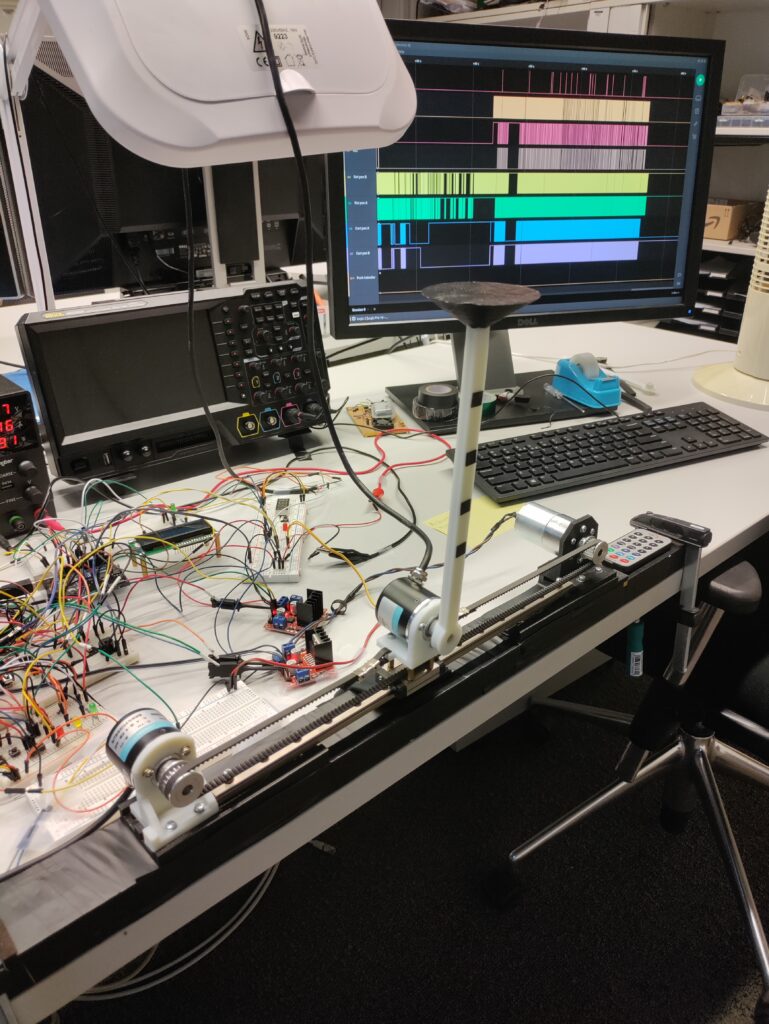
Specifically, the resilient control of the pendulum works by collecting proposals from the control tasks as to how to respond to the fall of the pendulum. We don’t have just one such task, but a number that depends on the number of faulty or compromised tasks the system should tolerate. Aleksandar’s solution collects the proposals of correct tasks over a period of time: these are called replicas because they all do the same job, but slightly differently, so that if a hacker knows how to compromise one, the others will not be compromised as well.
To ensure that another healthy replica is available in the next control epoch, Aleksandar’s concept is to make control tasks statelessly recoverable by telling the replicas what they want to remember when they restart. The crux of this idea is that they have to agree on what they want to remember and make sure that they always remember the right values. Then, over several epochs, the proposals are collected and compared to extract the correct ones from the healthy replicas.
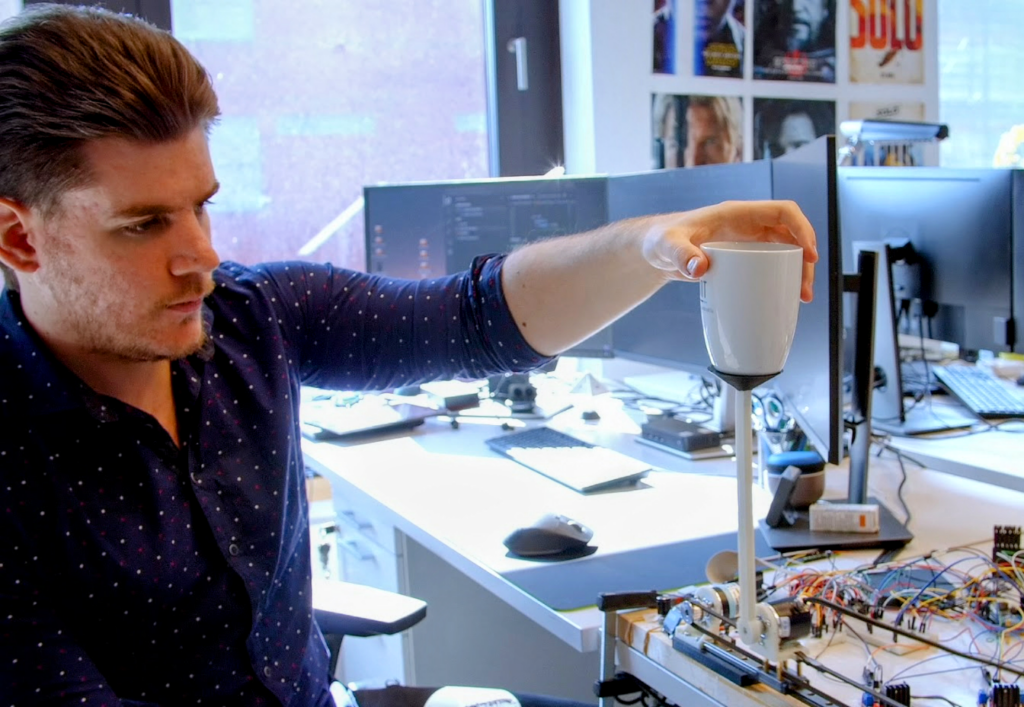
Back to the broom in your hand. If the broom is upright, it takes a while to fall, so even if we would not react for a split second, we can still balance it when it falls. The same idea applies here. The pendulum can tolerate us waiting a bit before we react and this allows us to build a much cheaper controller that is as resilient as the standard ones.
Aleksandar Matovic
Real-World Scenarios
Aleksandar’s goal is not only to explore theoretical aspects, but to work closely with industry to create solutions for real-world scenarios. In Luxembourg, he has achieved this at SnT by partnering with various industries and translating academic research into practical applications.
The dynamic and innovative research community is one of the reasons why Aleksandar chose Luxembourg as a research destination. The University of Luxembourg, and the SnT in particular, are renowned for their cutting-edge work in cybersecurity and ICT systems. The collaborative environment, with access to a network of international experts and industry partnerships, provides a unique platform for high-impact research.
In my experience, the research infrastructure in Luxembourg is exceptional, with financial and equipment resources readily available. Funding was never a concern, allowing us to focus solely on advancing our research.
Aleksandar Matovic
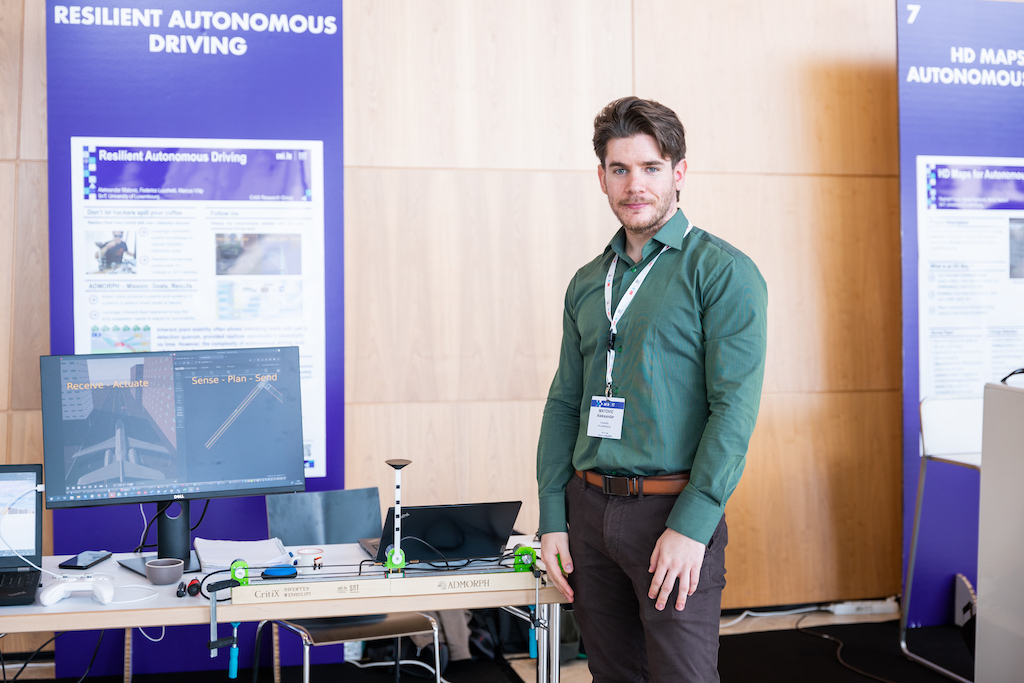
“A Mini United Nations”
According to Aleksandar, “Luxembourg’s multiculturalism truly resembles a mini United Nations”: his interactions with people of many different nationalities have enriched his experience and fostered a diverse exchange of ideas and viewpoints. This diversity enhances research and academia by providing a variety of perspectives.
In addition, Luxembourg’s strategic location in Europe reinforces its position as a leading hub for international research collaboration and innovation, making my time here exceptionally unique and globally connected.
Living in Luxembourg is a unique experience for Aleksandar, characterised by a high quality of life, a multicultural community and a safe environment. It also offers a range of professional opportunities as a hub for international business and research. The cost of living can be high, but this is often offset by the country’s amenities and efficient public services.
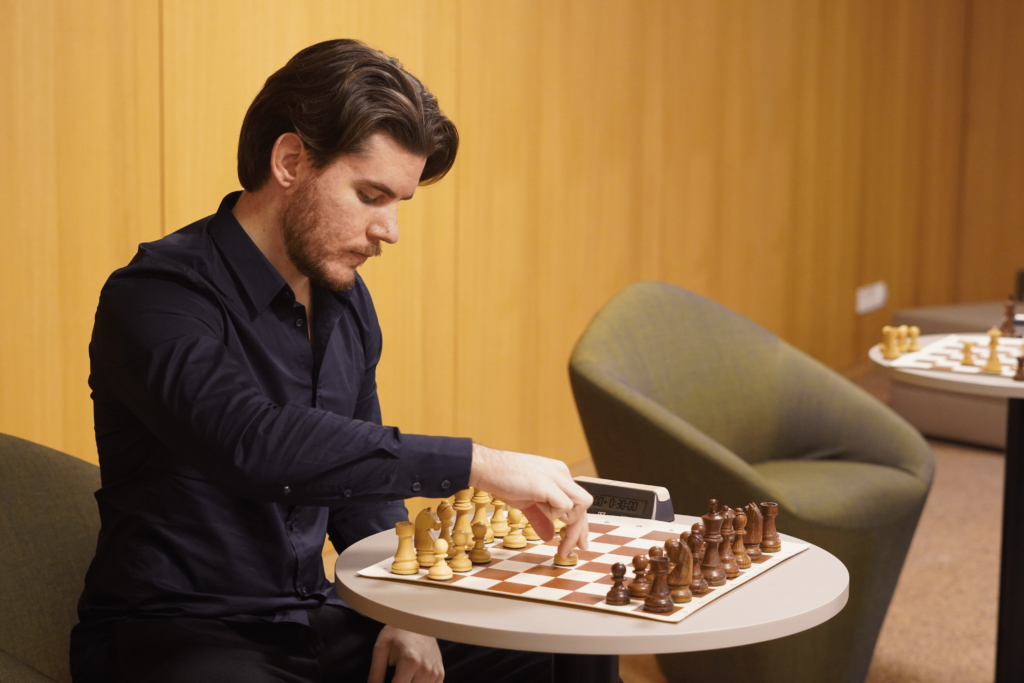
The move to Luxembourg was relatively easy for me, thanks in part to its diverse population which gave me a sense of belonging and helped me settle in. The familiarity with European culture and the international atmosphere in Luxembourg helped me a lot to adapt to life there.
Aleksandar Matovic









